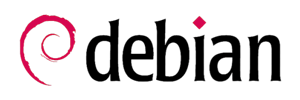The Best Linux Distribution (Distro) for Your VPS in 2024 – FireVPS
Why Linux for VPS?
Before diving into the best distros, let’s discuss why Linux is the preferred choice for VPS:
Security: Linux is known for its robust security features, making it a reliable choice for servers that need to handle sensitive data and protect against cyber threats.
Stability: Linux distros are stable and can run for long periods without needing a reboot. This ensures your server remains operational, minimizing downtime.
Cost-effective: Most Linux distros are free to use, which can significantly reduce operating costs.
Performance: Linux is lightweight and efficient, making it ideal for VPS where resources are shared among multiple users.
FireVPS – Your Trusted VPS Provider
FireVPS offers reliable, high-performance VPS solutions to meet various business needs. With data centers located worldwide, including the USA, Canada, Australia, Germany, and the UK, FireVPS ensures fast and secure hosting services. When you choose FireVPS, you get top-tier infrastructure and excellent customer support, making it easier to focus on selecting the best Linux distro for your VPS.
Top Linux Distributions for VPS in 2024
Here are the top Linux distros for your VPS in 2024:
- Ubuntu Server
- CentOS Stream
- Debian
- Fedora Server
- AlmaLinux
- Pros:
Regular Updates and a Large Community: Ubuntu’s large user base means that any issues are quickly identified and resolved, with frequent updates to enhance security and performance.
Extensive Documentation: There is a wealth of online resources, tutorials, and guides available to help users at all levels.
Long-Term Support (LTS) Versions Offer Stability: LTS versions are supported for five years, providing a reliable and stable environment for long-term projects.
- Cons:
Resource-Intensive: Ubuntu can be more resource-heavy compared to other distros, which might not be ideal for VPS plans with limited resources.
- Pros:
Continuously Updated, Providing Newer Features: CentOS Stream receives updates ahead of RHEL, offering newer features and improvements.
Strong Red Hat Backing: Being closely related to RHEL, CentOS Stream benefits from the robust support and stability of Red Hat.
- Cons:
Changes Can Sometimes Lead to Instability: Since it is a rolling-release, there can be occasional instability due to frequent updates.
- Pros:
Extremely Stable: Debian is renowned for its stability, making it a great choice for critical applications.
Large Software Repository: Debian offers a vast repository of software packages, ensuring users have access to a wide range of applications.
- Cons:
Slower Release Cycle Means Fewer New Features: Debian’s focus on stability means that new features are introduced at a slower pace compared to other distros.
- Pros:
Cutting-Edge Technologies: Fedora is often the first to implement new technologies, making it ideal for users who want to stay ahead of the curve.
Regular Updates: Fedora receives regular updates, ensuring users have access to the latest features and security improvements.
- Cons:
Shorter Lifecycle Means More Frequent Upgrades: Fedora’s shorter release cycle requires users to upgrade more frequently to stay supported.
- Pros:
RHEL Compatibility: AlmaLinux is fully compatible with RHEL, making it an excellent free alternative for users who prefer RHEL’s features and stability.
Community Support: AlmaLinux has strong community backing, ensuring continuous improvements and updates.
- Cons:
Newer Project, So It Might Have Less Community Support Compared to Older Distros: As a newer project, AlmaLinux’s community is still growing, which might mean fewer resources compared to more established distros.

Ubuntu Server is one of the most popular choices for VPS due to its user-friendly nature and strong community support.
Ideal for: Beginners and those who need a stable, well-supported server environment. Consider this if you’re looking for the best Ubuntu VPS experience.

CentOS Stream is a rolling-release distro that sits between Fedora and RHEL (Red Hat Enterprise Linux).
Ideal for: Users who need a balance between stability and cutting-edge features.

Debian is known for its stability and reliability, making it a favorite among experienced users.
Ideal for: Users who prioritize stability and security over having the latest features. For a reliable and robust option, consider Debian VPS hosting.

Fedora Server offers the latest features and technologies, often serving as a testing ground for Red Hat.
Ideal for: Users who want the latest technologies and are comfortable with regular updates.

AlmaLinux is a community-driven project that aims to be a 1:1 binary-compatible fork of RHEL.
Ideal for: Users looking for a free, RHEL-compatible distro with community backing.
Comparison Table
| Feature | Ubuntu Server | CentOS Stream | Debian | Fedora Server | AlmaLinux |
|---|---|---|---|---|---|
| Stability | High | Medium | Very High | Medium | High |
| Ease of Use | Very High | High | Medium | Medium | High |
| Community | Very Large | Large | Large | Medium | Medium |
| Update Cycle | Regular | Rolling | Slow | Regular | Regular |
| Cutting-edge | Medium | High | Low | Very High | Medium |
Benefits of Each Distro
Ubuntu Server Benefits:
Easy to Use: Ubuntu’s popularity means there is a wealth of tutorials and support available, making it easy for beginners to get started.
LTS Versions: Long-term support versions are available for those who need a stable, reliable server. These versions have been supported for five years, offering peace of mind for long-term projects.
CentOS Stream Benefits:
Continuous Updates: Receive updates and new features continuously, ensuring your server has the latest improvements.
Red Hat Support: Backed by Red Hat, CentOS Stream benefits from the robust support and stability of Red Hat, making it a reliable choice for many users.
Debian Benefits:
Rock-solid Stability: Known for its stability, Debian is an excellent choice for critical applications where uptime is essential.
Security: Debian has a strong focus on security, with regular updates and a large repository of tested software packages.
Fedora Server Benefits:
Latest Features: Always get the latest features and technologies first, making Fedora ideal for users who want to stay ahead of the curve.
Innovation: Fedora is often the first to implement new technologies, making it a great choice for developers and tech enthusiasts who want to experiment with the latest advancements.
AlmaLinux Benefits:
RHEL Compatibility: Fully compatible with RHEL, AlmaLinux offers a free alternative with the same features and stability.
Community Driven: Strong community support ensures continuous improvement and updates, making it a reliable choice for users looking for a RHEL-compatible distro.
Conclusion
Choosing the right Linux distro for your VPS depends on your specific needs. If you are a beginner or need extensive support, Ubuntu Server might be the best choice. For those needing a balance between new features and stability, CentOS Stream is ideal. If stability and security are your top priorities, Debian is a solid choice. For users who want the latest technologies, Fedora Server is the way to go. Lastly, if you need RHEL compatibility with community support, AlmaLinux is an excellent option.
With FireVPS, you get the best infrastructure to host your preferred Linux distro. FireVPS’ reliable, high-performance VPS solutions ensure your server runs smoothly, securely, and efficiently, providing a strong foundation for your online endeavors. For those looking to buy cheap VPS hosting, FireVPS is the perfect choice.
Evaluate your needs and choose the distro that aligns best with your requirements. No matter which you choose, FireVPS will support you with top-tier hosting services and excellent customer support to help your business succeed. Whether you’re looking for the best Linux VPS or considering a Ryzen VPS for enhanced performance, FireVPS has got you covered.

Need Domain Name?
85% Promo on Domain Names

Dedicated RDP
Poland RDP 50% recurring discount!
Recent Post
Fixing “Read‑Only File System” Error on Linux System: Causes & Complete Solutions
fsck is designed to fix errors, not delete data. However, if it finds severely corrupted files, it may move them to a lost+found folder. Always back up if possible before running it.Some VPS platforms use shared virtual disks, which may be...
Command Not Found in Linux: Real Error Examples & How to Fix Them
It could be because the binary is not in your system's PATH. Run echo $PATH to see your current PATH, and ensure it includes the directory where the binary is installed.Functionally, it's the same issue — the shell can't locate the command....
bash: systemctl: command not found – How to Fix This Common Linux Error
If you’ve ever run into the error: bash: systemctl: command not found... while trying to manage a service in your Linux VPS or server, you’re not alone. This is one of the most commonly encountered Linux command-line errors, especially by...
Custom AI Models vs. Pre-Trained ChatGPT: What’s Best for Your Business?
In our day-to-day lives, we use AI models extensively—for research, email handling, knowledge sharing, content creation, and more. Among these, the most prominent leader in the AI market is ChatGPT, which has become an integral part of our...